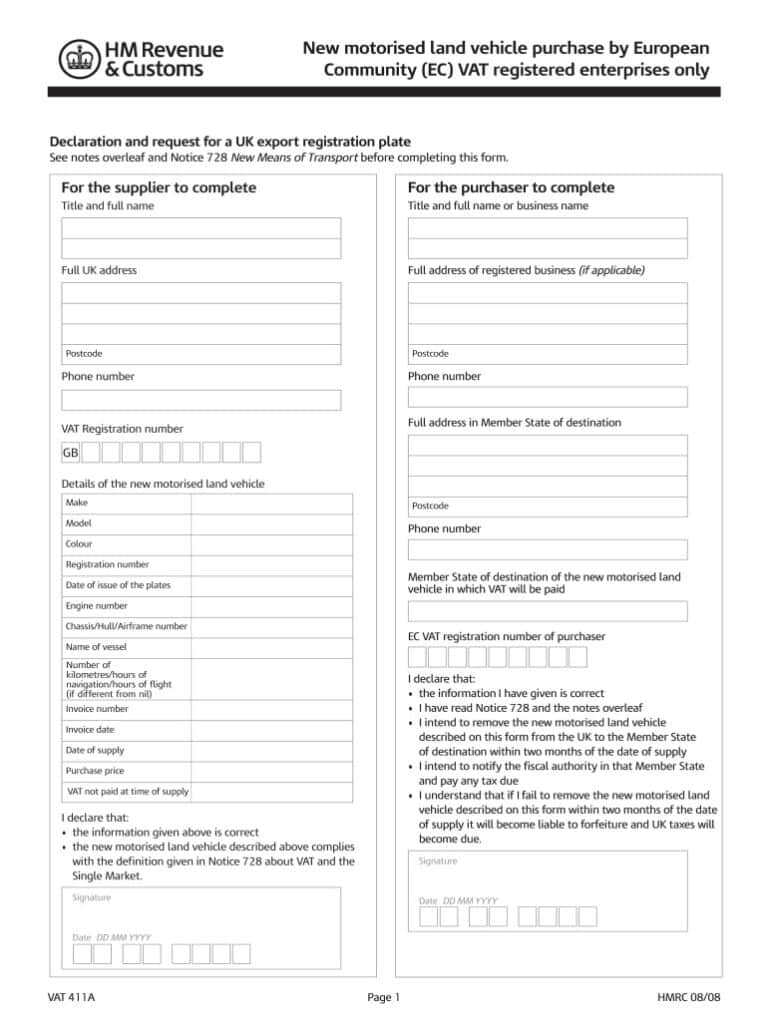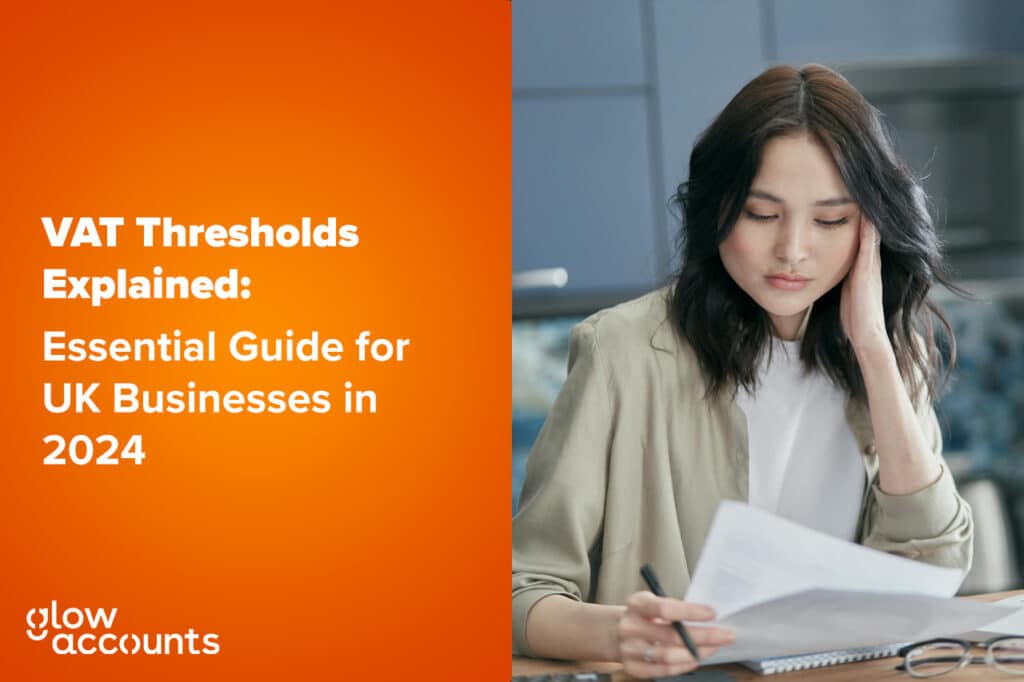For businesses operating in the UK, understanding VAT (Value Added Tax) and meeting compliance requirements is critical. VAT is a consumption tax applied to most goods and services, and when your business crosses a certain financial limit—known as the VAT threshold—you are required to register for VAT. Failing to do so can result in penalties and interest charges from HMRC (Her Majesty’s Revenue and Customs).
As of 2024, the VAT threshold stands at £90,000. This threshold plays a significant role in determining when a business needs to start charging VAT on its sales, file VAT returns, and manage other administrative duties related to VAT. In this guide, we’ll break down everything UK businesses need to know about VAT thresholds, registration responsibilities, and compliance with the latest HMRC rules.
We’ll also discuss the key facts provided by Gov.uk and Xero to ensure your business stays compliant with up-to-date VAT regulations.

What is VAT & Why Does it Matter?
VAT is a consumption tax levied on the sale of goods and services in the UK. It is charged at each stage of the production and distribution chain, but the consumer bears the final cost. VAT is an important part of financial operations for businesses, as they act as intermediaries in collecting and remitting VAT to HMRC.
The standard VAT rate in the UK is 20%, but reduced rates (e.g., 5% for certain goods and services) and zero-rated items also exist. Businesses that are VAT-registered must charge VAT on their goods or services, file VAT returns, and ensure compliance with HMRC regulations.
VAT Thresholds: What Are They?
The current threshold, applicable after 1 April 2024, is now £90,000.
A VAT threshold is the financial limit that determines when a business must register for VAT. In 2024, the VAT registration threshold has increased to £90,000. This means that if your business’s taxable turnover exceeds £90,000 in any 12-month rolling period, you are legally required to register for VAT with HMRC.
- VAT registration and deregistration thresholds increased from 1 April 2024 for small businesses that make taxable supplies or, in Northern Ireland, EU acquisitions between £85,000 and £90,000.
- The 12-month taxable turnover threshold which determines whether a person must be registered for VAT will increase from £85,000 to £90,000.
- The 12-month taxable turnover threshold which determines whether a person may apply for deregistration will increase from £83,000 to £88,000.
- For Northern Ireland, the registration and deregistration thresholds for acquisitions will increase from £85,000 to £90,000.
“Announced in the spring budget and brought into effect from 1st April 2024, the VAT (Value Added Tax) registration threshold has been raised from £85,000 to £90,000.”
Key Points on VAT Thresholds:
- VAT Registration Threshold:£90,000 (as of 01 April 2024)
- De-registration Threshold:£88,000
- VAT Accounting Scheme Threshold:£150,000 for joining, £230,000 for exiting
These thresholds are updated by HMRC periodically to reflect economic conditions, and they play a significant role in determining when businesses must comply with VAT regulations.
Taxable Turnover Explained
Your taxable turnover is the total value of all the goods and services your business sells that aren’t VAT-exempt. This figure includes both standard-rated and reduced-rated sales, as well as services that are subject to zero-rated VAT. Exempt sales, such as some financial or educational services, are not included in taxable turnover, but it’s important to keep track of them for reporting purposes.
It’s essential to monitor your taxable turnover closely. If your turnover exceeds the £90,000 VAT threshold within any rolling 12-month period, you must register for VAT within 30 days.
What counts towards your taxable turnover?
- Standard-rated sales: Goods and services charged at 20% VAT.
- Reduced-rated sales: Goods and services charged at 5% VAT (e.g., certain home energy-saving materials).
- Zero-rated sales: Goods and services that have no VAT applied, such as exports to non-EU countries or most food items, but still count towards your taxable turnover.
What Happens if You Exceed the VAT Threshold?
Steps to Take When Exceeding the VAT Threshold:
- Register for VAT: You can register for VAT online through the HMRC website. The registration can take effect from the date you exceed the threshold, or you can choose to backdate the registration.
- Charge VAT on Sales: Once VAT-registered, you must start charging VAT on all taxable sales at the appropriate rate (20%, 5%, or 0%) depending on the goods or services.
- Submit VAT Returns: VAT returns are typically submitted quarterly, detailing the VAT you’ve charged and the VAT you’ve paid on business purchases.
- Remit VAT to HMRC: You must pay the VAT you’ve collected to HMRC, minus any VAT you can reclaim on eligible purchases.
Be warned, failure to register on time can result in financial penalties and interest charges from HMRC, so it’s crucial to stay on top of your taxable turnover.

Voluntary VAT Registration
Even if your business’s taxable turnover is below the £90,000 threshold, you may opt for voluntary VAT registration. Many smaller businesses choose to register voluntarily to reclaim VAT on business expenses, making it beneficial for those who purchase from other VAT-registered businesses.
Benefits of Voluntary VAT Registration:
- Reclaim VAT on Purchases: Voluntarily registering allows you to reclaim VAT on any eligible business expenses, which can lower your overall costs.
- Enhance Business Credibility: Some businesses prefer to be VAT-registered as it can give the appearance of being more established or professional, which may appeal to larger clients or suppliers.
VAT De-registration Threshold
If your business’s taxable turnover falls below £88,000, you can apply to de-register for VAT. De-registering reduces your administrative obligations, as you’ll no longer be required to charge VAT on sales or submit VAT returns.
To de-register, you must notify HMRC and provide a final VAT return. After de-registration, you won’t charge VAT on future sales, but you’ll also lose the ability to reclaim VAT on your business purchases.
Responsibilities of Being VAT-Registered
Once your business is VAT-registered, there are several ongoing obligations to fulfil:
- Charging VAT on Sales: You’ll need to charge VAT at the correct rate on all taxable sales.
- Issuing VAT Invoices: All VAT-registered businesses must issue VAT invoices for goods and services provided.
- Maintaining VAT Records: HMRC requires you to keep detailed VAT records, including all sales and purchases. These records must be kept for at least six years.
- Filing VAT Returns: VAT returns are typically submitted every three months, although some businesses may opt for annual filing. VAT returns report the total VAT you’ve charged on sales and the VAT you’ve paid on purchases.
Failure to adhere to these obligations can result in penalties from HMRC, so it’s essential to stay organised and compliant.
VAT Schemes to Simplify Compliance
HMRC offers several VAT schemes designed to simplify VAT management, especially for small businesses. Each scheme has its own eligibility criteria and thresholds.
1. Flat Rate Scheme
The Flat Rate Scheme allows businesses with a taxable turnover of up to £150,000 to simplify their VAT reporting. Instead of calculating VAT on each sale and purchase, businesses pay a fixed percentage of their turnover to HMRC.
2. Annual Accounting Scheme
The Annual Accounting Scheme is designed for businesses with a turnover of up to £1.35 million. It allows businesses to make advance VAT payments throughout the year and file just one VAT return annually.
3. Cash Accounting Scheme
With the Cash Accounting Scheme, businesses only account for VAT when they receive payment from their customers, rather than when they issue invoices. This scheme is available for businesses with a turnover of up to £1.35 million and can help with cash flow management.
Avoiding VAT Registration Penalties
If your business exceeds the £90,000 VAT threshold, failing to register for VAT on time can lead to penalties from HMRC. These penalties are calculated based on the VAT you owe and can include interest on late payments.
How to Avoid VAT Registration Penalties:
- Monitor Your Turnover Regularly: Review your taxable turnover frequently to ensure you register as soon as you reach the threshold.
- Use Accounting Software: Platforms like Xero can help you track your turnover and alert you when you’re nearing the VAT registration threshold.
In Conclusion
Understanding and managing VAT thresholds is a crucial aspect of running a business in the UK. With the VAT registration threshold now at £90,000 for 2024, businesses need to stay vigilant about their taxable turnover and ensure they register for VAT when required. Whether you’re close to the threshold, voluntarily registering, or considering de-registration, this guide provides the essential facts to help you navigate VAT responsibilities confidently.

Let Glow Accounts Help You Stay VAT Compliant
At Glow Accounts, we understand that managing VAT compliance can be a complex and time-consuming task for businesses of all sizes. Whether you’re nearing the VAT registration threshold, have already crossed it, or are considering voluntary registration, our team of expert accountants is here to guide you every step of the way.
We’ll ensure that your business meets all VAT obligations, from registration and invoicing to filing returns and maintaining accurate records. Let us handle the intricacies of VAT compliance so you can focus on growing your business.
Contact us today to learn more about how we can simplify your VAT management and keep you ahead of your tax responsibilities or email us at info@glowaccounts.co.uk or call 01892 267 750.



